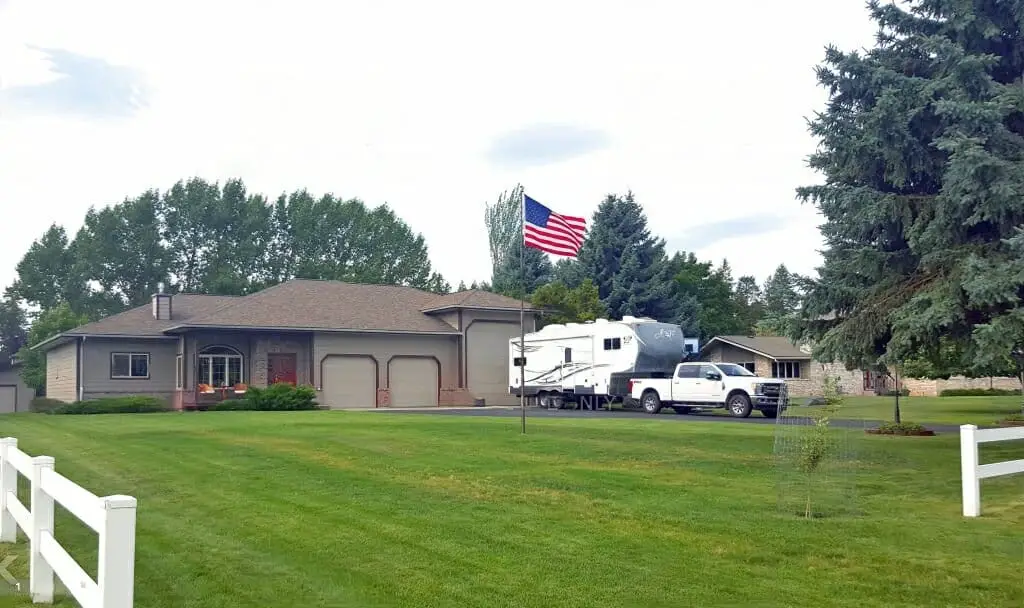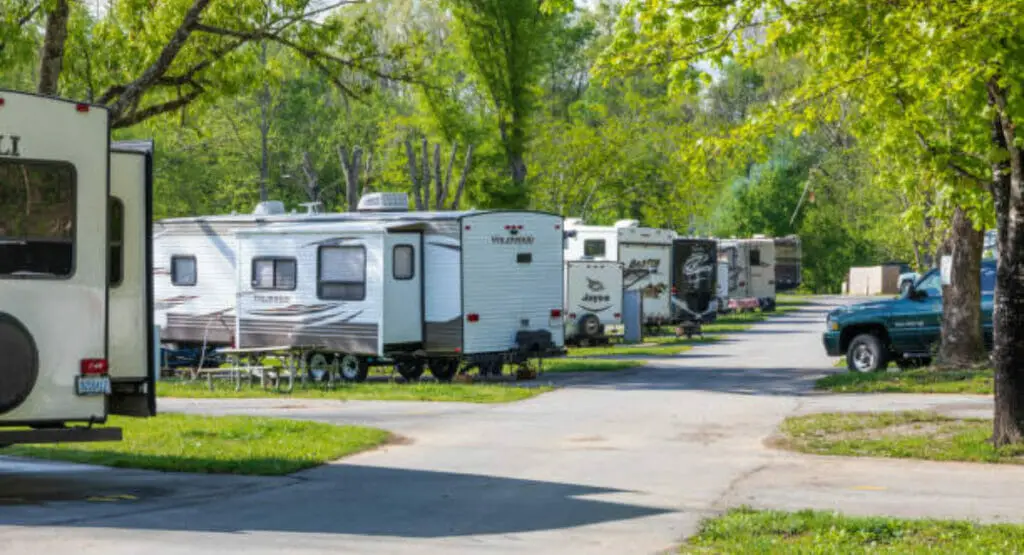Introduction:
When it comes to RV ownership, having a safe and secure place to park when not in use is critical. An RV garage can give that protection, but creating one can be expensive. In this blog post, we will look at the cost of creating an RV garage, including the elements that influence the cost, a breakdown of expenses, and ideas for lowering construction costs.
An RV is a big investment, and keeping it safe from the elements and potential theft is critical to preserving its value. An RV garage is a secure and safe place to store your RV, protecting it from weather damage and lowering the danger of theft. Furthermore, having a dedicated storage place for your RV can free up space in your driveway or yard, making it a more convenient and tidy solution.
I. Factors Affecting RV Garage Costs
1. Location
The cost to build an RV garage varies with factors The cost of constructing an RV garage varies greatly depending on where you live. The cost of constructing an RV garage will be higher if you live in a region with high labor and material costs. Also, building laws and regulations differ by location, which might affect the cost.
2. Size:
Another important component influencing the cost is the size of the garage. Bigger garages necessitate more materials and labor, therefore they are often more expensive than smaller ones. But, when deciding on the size of your garage, you must consider the size of your RV as well as any additional storage requirements.
3. Kind of Garage:
RV garages come in a variety of styles, including attached, detached, and carport-style garages. The attached garages are connected to your home and might make accessing your RV more convenient. Detached garages are independent constructions that provide for greater positioning and size flexibility. Carport-style garages are open-air constructions that provide shelter from the weather but lack the security of enclosed garages.
4. Roofing:
The type of roofing you select might also influence the cost of constructing an RV garage. Shingle roofs are the most frequent and least expensive alternative, although they may not last as long as metal or flat roofs. Metal roofs cost more but last longer and require less upkeep. Flat roofs are a good choice for individuals who want a modern style and may also provide extra storage space.
5. Materials:
The materials you choose for the garage can significantly affect the cost. Wood is a popular material, although it may not be as long-lasting as metal or concrete. Metal is a popular choice due to its durability and low maintenance requirements, although it is more expensive. Concrete is the most long-lasting and sturdy alternative, but it is also the most expensive.
6. Permits:
Depending on where you reside, you may be required to obtain permits prior to constructing an RV garage. Permit prices might vary greatly depending on location and project complexity. When budgeting for your RV garage remodels, remember to include permit charges.
II. RV Garage Cost Breakdown
The following is a breakdown of the costs associated with constructing an RV garage:
1. Foundation
The foundation is the foundation of your garage and is necessary for supporting the weight of your RV. The cost of the foundation will vary depending on whether you pick a slab or a full basement. The foundation might cost anywhere between $5,000 and $20,000 on average, depending on the size and complexity of the building.
2. Walls:
Another important expense is the garage walls. The cost of the walls will be determined by the materials used, such as wood or metal, as well as the size of the garage. The cost of the walls might range between $5,000 and $15,000.
3. Roof:
Another significant expense is the roof of your garage. The cost of your roof will be determined by the materials you select, such as shingles or metal. The cost of a new roof might range from $5,000 to $15,000.
4. Doors:
The garage doors are necessary for accessing your RV. The cost of the doors will vary depending on whether you choose a roll-up door or a sliding door. The cost of the doors might range from $1,000 to $5,000 on average.
5. Electrical:
Electrical work is required if you wish to power your garage, such as with lighting or electrical outlets. The cost of electrical work is determined by the project’s complexity and the cost of materials. Electrical work might cost anywhere between $1,000 and $5,000 on average.
6. Plumbing:
If you intend to have a bathroom or a sink in your RV garage, plumbing must be installed. The cost of plumbing will be determined by the project’s intricacy and the cost of materials. Plumbing costs can range from $1,000 to $5,000 on average.
III. Tips to Reduce RV Garage Building Costs
Constructing an RV garage might be costly, but there are methods to cut costs. Consider the following suggestions:
1. Plan Ahead:
It is critical to plan ahead in order to keep prices down. Begin by selecting your budget and the characteristics that are most important to you. Assess the garage’s size and location, as well as any additional storage requirements. You can avoid costly modifications and revisions later on if you have a clear plan in place.
2. DIY vs. Hiring a Contractor:
Decide if you want to build the garage yourself or employ a professional. You can save money on labor by building the garage yourself, but it takes more time and experience. Hiring a contractor is more expensive, but it guarantees a high-quality build.
3. Consider Prefab Alternatives:
For individuals on a tight budget, prefab garages can be a good option. These garages are factory-built and may be readily erected on-site. Prefabricated garages are less expensive than custom-built garages and can save you time and money.
4. Material shopping:
Browsing around for materials can also help you save money. To locate the greatest bargains, compare prices at various stores and online retailers. To save even more money, consider using recycled or salvaged materials, such as reclaimed wood.
5. Evaluate Financing Options:
If you don’t have the cash to build your garage, think about financing options. You can finance the project with a loan or a credit card. Check around for the best interest rates and conditions.
By following these tips, you can reduce the cost of building an RV garage without sacrificing quality or functionality.
CONCLUSION
Constructing an RV garage is a substantial investment, but it may be well worth the cost of safeguarding your vehicle and giving you extra storage space. In this blog post, we’ve addressed numerous crucial considerations to keep in mind when calculating the cost of an RV garage.
First, we reviewed the elements that can affect the cost of RV garage, such as location, size, and materials. We also broke down the cost of an RV garage into numerous components, including the foundation, walls, roof, doors, electrical, and plumbing.
Secondly, we shared some recommendations to help lower the RV garage cost. By planning ahead, researching DIY choices, shopping around for materials, and evaluating financing options, you can save money on your project without losing quality.
In conclusion, creating an RV garage can be a considerable expense, but it can also be a rewarding investment. By understanding the costs involved and taking steps to lower those expenditures, you may construct a practical and protected place for your RV while staying within your budget.



